[Sponsored content] 28 years in China, Singapore brand OSIM continues to thrive amid the pandemic
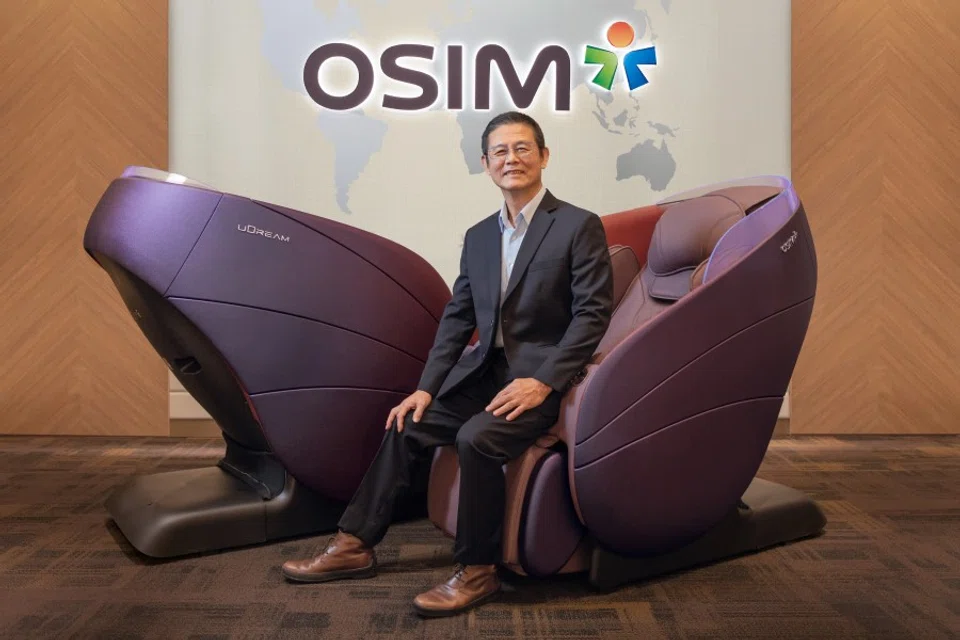
From a small household goods trading firm started by Singaporean entrepreneur Ron Sim in 1980, OSIM International has morphed into a global premium well-being company with 426 outlets in more than 90 cities across 19 countries and territories. Its parent company, luxury group V3, not only has OSIM as its crown jewel, but owns other brands such as TWG Tea and nutritional supplements retailer ONI Global. The stresses of urban life and a greater emphasis on wellness look set to keep demand up for upmarket massage chairs and healthy lifestyle products. The pandemic has had an impact on business, but the company has its sights on realigning itself and looking to the medium- and long-term.
Leading the charge is Charlie Teo, CEO of OSIM International who has worked alongside founder Sim since 1989. Teo says that Sim often reminds him that there is no point focusing too much on the competition, or spending time and energy thinking about how to deal with competitors and detractors. One should just concentrate on their own goals and work towards them because "success is the best revenge". This is an adage that Teo and others in the company have kept in mind. Through a drive for innovation and a constant push to reach greater heights, OSIM is intent on riding the digital wave and reaching new heights in their business.
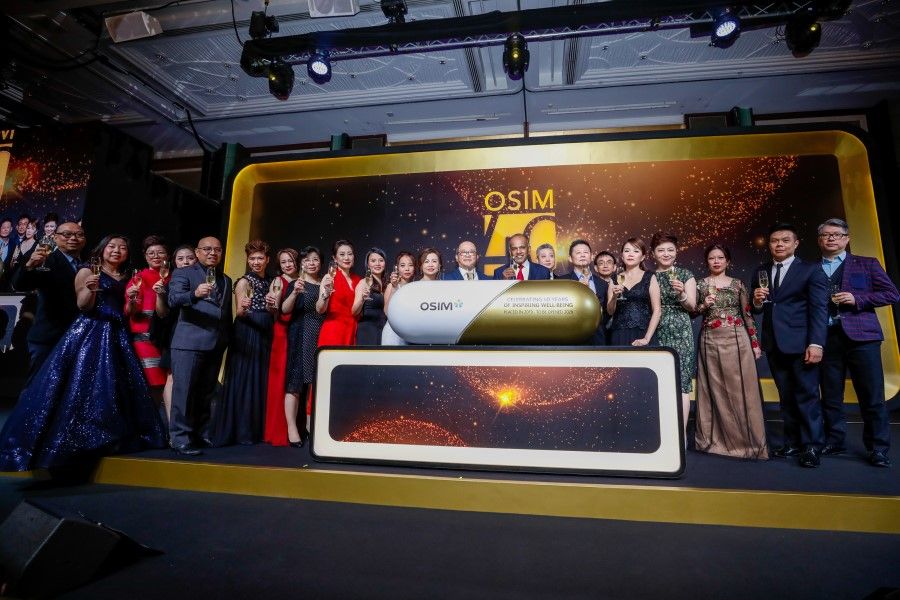
OSIM has been in the mainland Chinese market since 1993. How did it break into the market and how is it doing now?
Given Singapore's small domestic market, we gradually expanded our presence in the region to Malaysia, Taiwan, and Hong Kong. The next logical step was to go into the vast and largely untapped mainland China market. In the early 1990s, China's economic reforms saw the country opening up to foreign businesses, along with increased privatisation. These reforms led to rapid urbanisation and a consequent increase in consumer spending. Also, as a Singapore company expanding to China, we felt that there was a lower barrier in terms of culture, language, and communication. These favourable factors made OSIM's entry into the mainland Chinese market a timely one.
Every market is unique and the lifestyle needs of individuals across all demographics evolve constantly. Thus, listening and catering to these demands is an important pillar of our product development strategy.
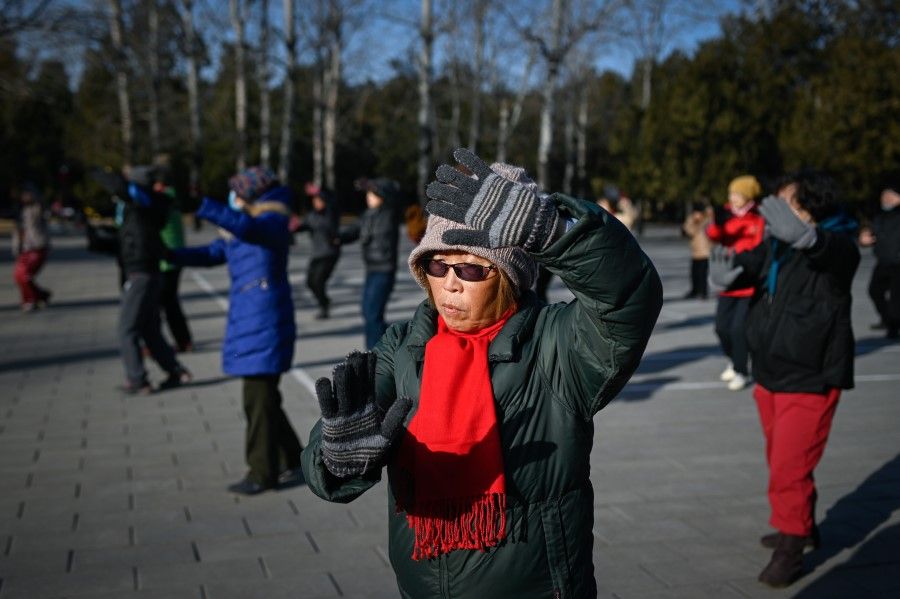
In the initial phase, we focused on first-tier cities such as Beijing, Shanghai, and Guangzhou. Entering any new market poses a unique set of challenges, including the need to understand the local regulatory and business landscape, as well as consumer habits. As China had just begun to open up its economy, the country's policies and procedures were also in a constant state of flux, and we had to remain flexible and adaptable to ensure that we kept up. We had to "accept, absorb, adjust and reapply" with each change and hurdle that we faced on the ground, while keeping our mindset open and positive.
In addition, even though we spoke the same language, we did have to contend with cultural and historical differences, leading sometimes to misunderstandings and even some memorable moments of laughter with our Chinese team and partners. One of the key areas we focused on was setting up a local team that could serve as an effective part of the overall OSIM brand, and embody the values, ethos and vision of the brand. From day one, we believed that this would be a strong asset in ensuring the brand's long-term growth and success.
The universal appeal of health and wellness aside, the strong reputation of the OSIM brand in the health and wellness space was a strength. OSIM offered innovative and tech-infused solutions to the traditional concerns of health and wellness. This set us apart from other health and wellness brands from the start. We continued to reinforce this approach through an ongoing commitment to innovation, paying attention to detail, and responding meaningfully to the needs and desires of consumers. Every market is unique and the lifestyle needs of individuals across all demographics evolve constantly. Thus, listening and catering to these demands is an important pillar of our product development strategy. As a result, our products were well-received in these cities even in the early days.
Today, we have a presence in more than 30 major cities in China, such as Shanghai, Beijing, Guangzhou, Shenzhen, Chongqing, Chengdu, Hangzhou, Nanjing, Wuhan, Foshan, Fuzhou, Xiamen, Kunming, Tianjin, Shijiazhuang, Harbin, Guiyang and others. We have noticed that many of our products drawing from TCM techniques are very well-received by the China market. This is due to the fact that traditional massage techniques such as acupressure and foot reflexology form the basis of many TCM treatments, and their efficacy has been recognised for centuries. As many of our massage products infuse the time-tested knowledge of TCM treatments with modern day features and innovations, they have been even more well-received by the Chinese market compared to our non-Asian markets.
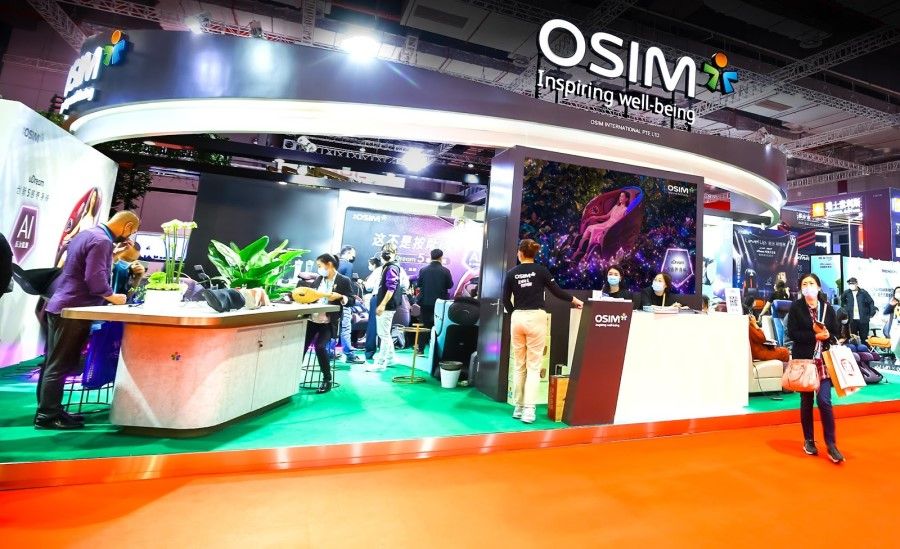
What are OSIM's projections for the health and wellness market in China over the next few months, or even years, given the current Covid-19 epidemic?
The rising health and wellness sector was already experiencing a surge of interest in China before Covid-19 hit. The Chinese believe strongly that "prevention is better than cure", which is why prevention is the basis of health and wellness.
Covid-19 has only reinforced this idea, and the Chinese will do whatever is necessary, no matter the price, in order to maintain health. Just look at the lockdown in Wuhan in February 2020.
...travel plans of the locals in China have been derailed, keeping consumer spending within the country. As a result, domestic expenditure has played an important part in supporting the local retail industry. In fact, OSIM has also seen our sales figures rebound over the last few months...
As general health concerns dominated the headlines last year, consumers in China naturally became more health conscious and started investing more in products and services for their overall health. For instance, our massage chairs saw an increase in interest due to the need to address aches and pains from working from home, and also to manage stress due to the unprecedented changes experienced over the past year. We also looked to better support our existing and new customers by rolling out a range of "Immunity Booster" download programmes for products such as the uDream, uLove2 and uDivine V. To care for the overall health and wellness of family members, more customers took an interest in our air and water purifiers. Finally, even our fitness products saw an increase in interest as many sought to maintain and better their overall health and fitness. Ultimately, this demonstrates that an individual's health and wellness is one of our most prized possessions, and taking care of this requires a holistic approach.
In addition, because of the travel restrictions imposed, travel plans of the locals in China have been derailed, keeping consumer spending within the country. As a result, domestic expenditure has played an important part in supporting the local retail industry. In fact, OSIM has also seen our sales figures rebound over the last few months as the situation stabilised in China, and we are optimistic about the recovery of China's domestic economy.
Against this backdrop, China's e-commerce market has also experienced a dramatic surge. Through a combination of online and offline retail efforts, OSIM has been able to reach out to consumers across a range of platforms. Naturally, this confluence of factors also results in more competition.
What strategies is OSIM adopting to deal with strong competition in the Chinese market?
OSIM has formulated the "3 Innovations and 3 Transformations" ("三个创新、三个化") business strategy to manage this.
The "3 Innovations" (三个创新) refer to Innovative products (创新产品), Innovative marketing (创新营销), and Innovative channels (创新渠道). For example, two innovative products we launched last year include the world's first five-senses well-being chair, the uDream, and the world's first gaming massage chair, the uThrone.
The uDream is not a massage chair. The well-being technology breakthroughs make it a landmark product that stands above the simple function of a massage chair. As the world's first five-senses well-being chair, it was developed to help users target and address the mounting issue of stress. Even in pre-pandemic times, society was already suffering from the ill-effects of accumulated and unaddressed stress. With the help of AI technology, the uDream was designed to help individuals measure, monitor and manage stress levels from the comfort of their own homes. With this iteration of the product, it is our intention that users will be more proactive in addressing their individual stress levels and well-being concerns. The uDream also features a first-ever concept in OSIM's product range, addressing the five senses of touch, sight, smell, taste and hearing simultaneously for complete relaxation to address the symptoms of stress and improving well-being, thus putting into practice the Chinese belief that "prevention is better than cure".
Another first-of-its-kind product, the uThrone features our proprietary V-Hand technology that covers the shoulders and back, immersive bluetooth systems and an ergonomic design for greater comfort. Over the years, we noticed that younger and younger individuals were experiencing body aches and pains. Taking into consideration their evolving lifestyles, not only at work in front of a desk, but also at play while engaging in gaming, there was a need to develop a product that would help ease their discomfort and allow them to live happier and healthier lives.
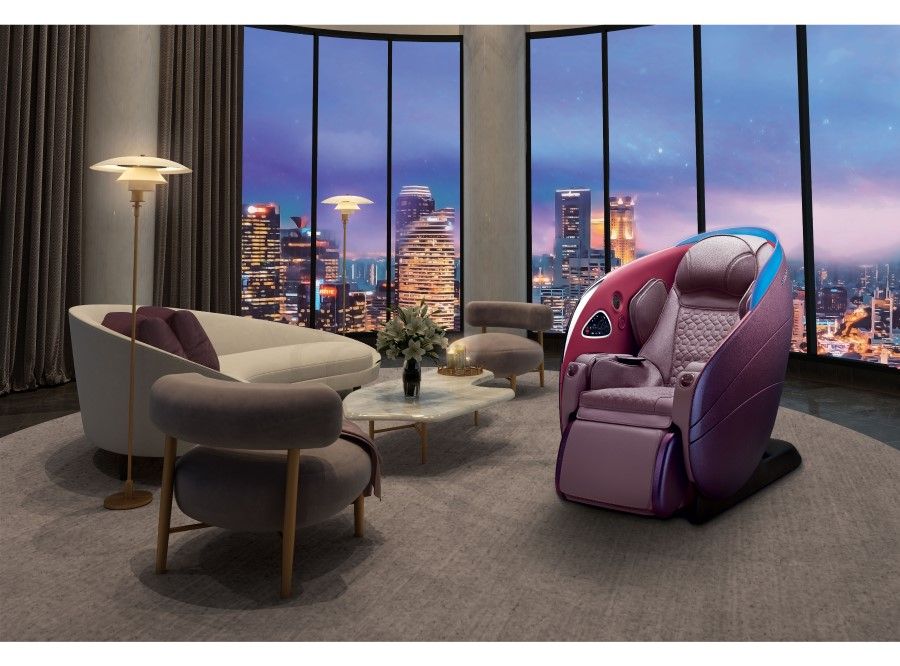
The "3 Transformations" (三个化) refer to the transformation of product offerings to include more smart products that utilise Artificial Intelligence and IoT technology (产品智能化), and to digital transformation in marketing and operations (营销数据化,营运数码化).
The Covid-19 pandemic has accelerated the public's usage of mobile apps and other technologies to better manage their health and well being, and this has truly transformed a previously traditional industry.
As the middle and upper class continues to expand in China, the discretionary income of these individuals also grows in tandem. This continues to take place regardless of the Covid-19 situation. Along with a notable change in their lifestyles, habits and expectations, a large proportion of the Chinese population is becoming more conscious of health standards, and is increasingly attuned to the latest health and wellness trends.
Another driving force for the growth of China's health and wellness industry is the greater acceptance and uptake of innovative technologies to manage an individual's health and wellness. The Covid-19 pandemic has accelerated the public's usage of mobile apps and other technologies to better manage their health and well being, and this has truly transformed a previously traditional industry. With the advent of health-tech wearables, consumers are now more empowered than ever before. Increasingly, they look for smart devices that can help them measure, manage and monitor their overall health and wellness levels. This trend is captured in OSIM's product ranges, such as the uDream.
This is an exciting time of growth for the Chinese market, and we remain positive in our outlook for the industry.
How has the Covid-19 epidemic affected OSIM's business operations?
In the first half of 2020 after Covid-19 hit, business was tough as retail stores were forced to shut. We had to close many of our stores in China and in other countries, and we had to quickly adapt to ensure that our staff were still taken care of through these challenging times. Even as we pivoted to adapt, much uncertainty remained as it was a truly unprecedented situation.
The pandemic has changed the business landscape irrevocably, and we need to look ahead at operating successfully in the post-pandemic world. The pandemic reinforced our longstanding commitment to online sales and operations. We saw the merits of online channels, and also found new areas to improve on.
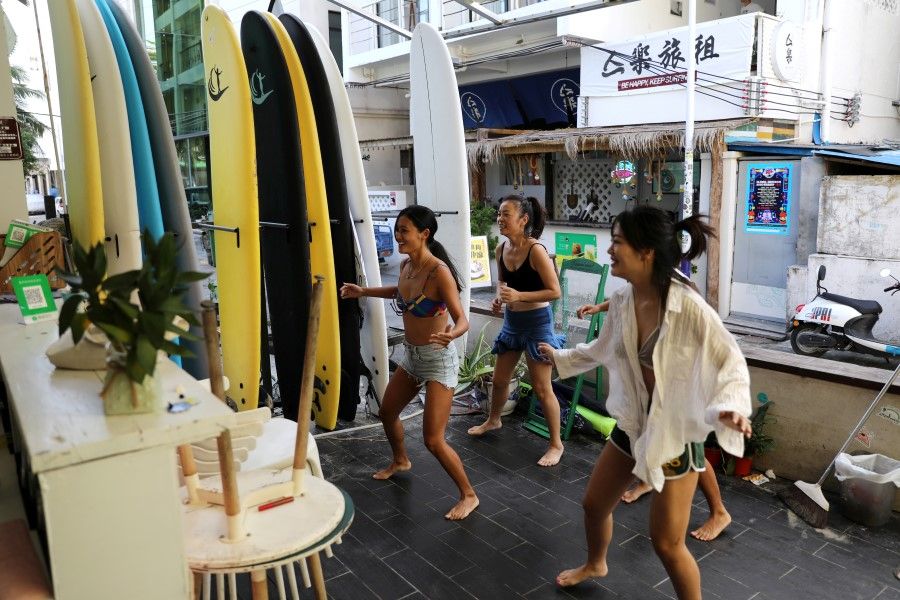
In the early months of the pandemic, we shifted our focus and manpower from physical stores to other areas such as operations and digital sales and marketing in order to continue catering to our customers. By activating sales channels through online platforms like our webstore and social media channels like WeChat, sales from online avenues supported the company through this period.
We are glad that we were able to continue supporting our staff and did not have to initiate any pay cuts or layoffs.
OSIM has a major presence in China's online market Tmall. Given China's push towards modernisation and e-commerce, how have online sales and physical store sales changed?
It is our philosophy that offline and online sales must be complementary in order to truly benefit any brand - even as retailers accelerate the growth of their online platforms over the course of the year due to Covid-19 restrictions to physical sales. It is important, however, to recognise that while online sales channels have huge market potential and are effective in making transactions, they cannot dominate our sales. Our goal now is to better leverage on the advantages of technology and online sales channels, and integrate that with our brick-and-mortar business. We need to live with technology, coexist with it, dance with it, and emerge stronger with it.
This complementary relationship requires a balance between in-store salespersons and online transactions. Managing this effectively will serve the best interest of our employees, while ensuring our sales efforts remain convenient and hassle-free for our customers. For instance, product prices must remain consistent across our physical and online stores, so as not to cannibalise the interests of the other. By mirroring the online and offline shopping experience, we are able to ensure that neither format is given an advantage over the other.
Maintaining the balance between online and offline channels also means that retailers have to relook the purpose of physical stores. It is no longer about simply being a place for transactions or the products alone, but about leveraging on the customer experience to keep them engaged.
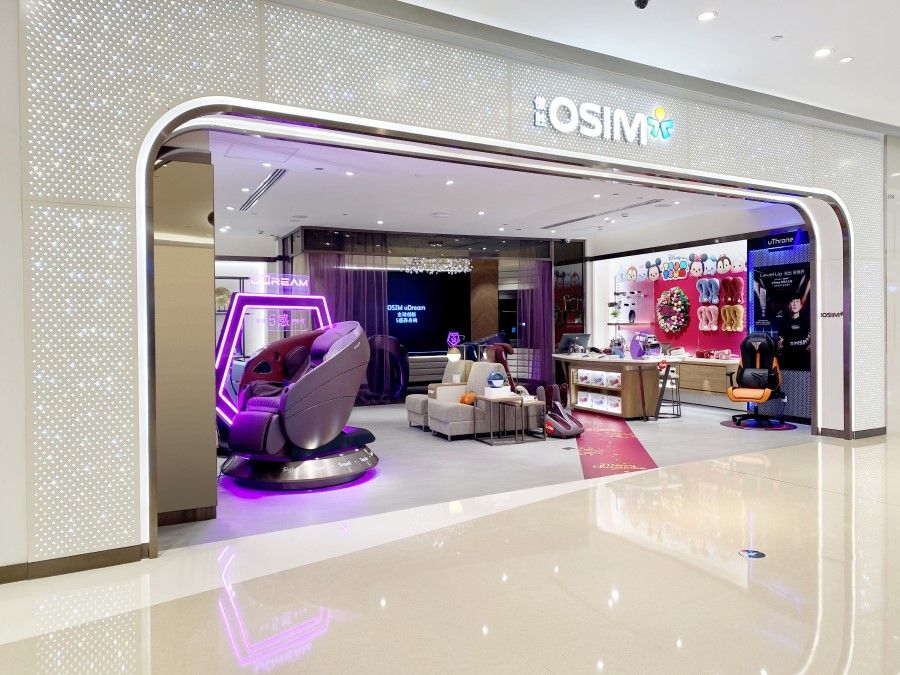
Experiential retail ensures that our customers are able to be engaged in immersive and shareable experiences that cannot be replicated on the online space. This allows for a more personalised experience that is more tactile and memorable.
While embracing the digital age is imperative, a business like ours also has a lot to do with the in-store customer experience, where they are able to test and truly feel the efficacy of our products. This also means that our in-store sales promoters have to play a very important role in educating customers not just about the products, about health and wellness in general.
Take for instance our recently launched uDream which uses AI technology to measure stress levels and help our customers monitor and manage their well-being through the activation of their five senses. Products such as these that provide a highly sensorial experience are found in-store, as the experience cannot be replicated online. On the road ahead, OSIM will continue to develop market-leading products that serve the real needs of consumers as they evolve with the times.
The pandemic has truly reinforced the necessity and appeal of an ever evolving multi-channel experience to address all customer touchpoints, as we see customers returning to our physical stores and online sales growing at a steady pace.
What are OSIM's future plans for the China market?
We remain optimistic about our business in China. The huge potential of the Chinese market is well-known and continues to stand out even amidst the troubled global economy. Thus, we will continue to expand our footprint in the "bottomless" (无底的市场) and vibrant China market.
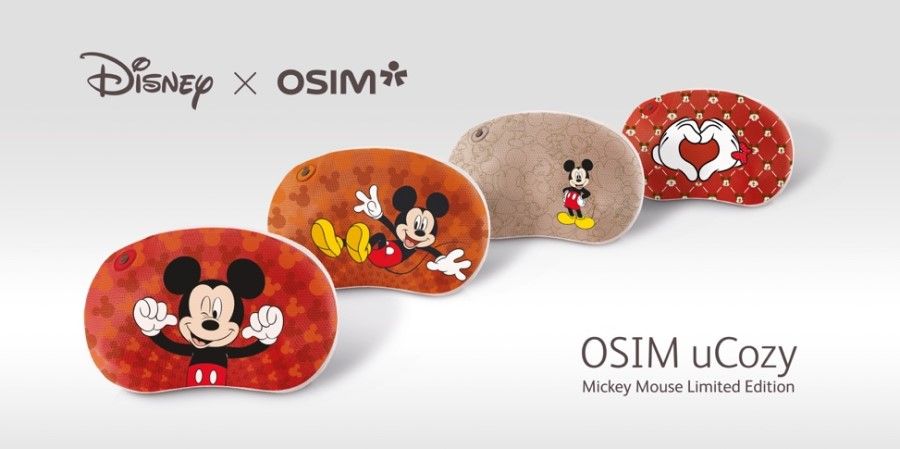
OSIM will continue to expand steadily across the China market, in new and current cities to further deepen our presence. Our long-term goal remains unchanged, as we look ahead to plan for new product and retail concepts that will inspire well-being amongst discerning Chinese consumers. Our customers can look forward to more exciting global brand collaborations on the horizon, including more co-branded products with Disney and Marvel following the launch of the highly-popular uCozy Mickey Mouse collection in 2020.
Through continued product innovation, we remain committed to developing new product ranges that will serve the real needs of consumers by addressing longstanding and emerging health and wellness needs. We will also continue to reach out to new and existing customers through digital means, while enhancing our operational efficiency and service levels through sustained digitalisation efforts.
Ultimately, it is our ongoing vision and mission to inspire and empower our customers to live healthier and happier lives.
Articles under the Health section are supported by OSIM.
Related: Acupressure points and acupuncture: How does it work? | Western medicine or Chinese medicine? China's TCM regulations spark debate | Token economics: How Singapore can boost synergy with China in building digital economies | Regulating new technologies: Singapore and China can work together